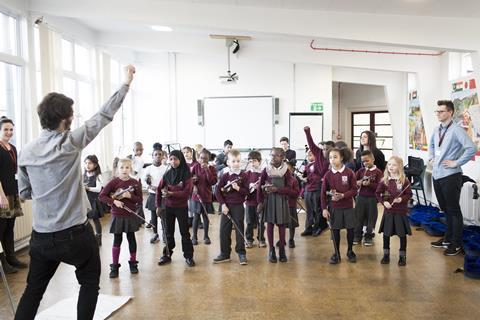’If A-Level music is not an option for young musicians, particularly those from disadvantaged backgrounds, the barrier to a musical future for them could well be insurmountable’

New research from the Royal Birmingham Conservatoire and Birmingham City University has found that A-level music may disappear from being offered in schools by 2033 if the current rates of local and central government funding cuts continue.
The report, led by researchers Dr Adam Whittaker and Professor Martin Fautley, shows that A-level music entries are in rapid decline in state schools and increasingly only becoming available in independent schools. The report calls for action to be taken now to prevent a disastrous impact on the future of the music education workforce and music industry, particularly as A-level students in 2033 (the projected year of elimination) are currently in primary school.
The report states, ’Whilst A-level music may not be the right course for all students, it is a good fit for some, and to not offer the subject in a wide range of schools is to deny students the opportunity to choose - a student cannot choose a qualification that is not offered to them. What we know nationally is that a disproportionately large number of A-level music entries come from independent schools, and that the most deprived local authorities enter a very small number of students for A-level music or, in some cases, none at all’
It continues, ’Those who lack the means to support private instrumental study are unlikely to have sufficient income to pay for school fees, even if a bursary supports them to a greater or lesser extent’
In response to the report, the CEO of music education charity Music Masters Roz De Vile said, ’This research is deeply concerning. Since 2008 Music Masters has worked tirelessly to break down barriers preventing children from disadvantaged backgrounds to experience the life-changing opportunities that learning music can open up. Our seven year old violinists tell us that they aspire to be music educators – to show the next generation what’s possible, and to share the joy of making music with others who, like them, would not otherwise have the opportunity. If A-Level music is not an option for young musicians, particularly those from disadvantaged backgrounds, the barrier to a musical future for them could well be insurmountable, and the impact on our music sector devastating.’
Music Masters is a charity that aims to bring music back into schools, teaching young children to play the violin or cello with encouragement from well-known string ambassadors, including Sheku Kanneh-Mason and Nicola Benedetti.
Read: Artists and musicians speak out against proposed 50% funding cut to arts
Read: ISM report highlights devastating impact of COVID-19 on music education











































No comments yet